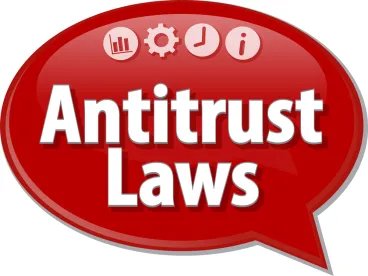On January 5, 2023, the Federal Trade Commission ("FTC") proposed a rule that would ban non-compete agreements between employers and workers on the basis that non-compete clauses are unfair methods of competition.
While the FTC claims to have authority under Section 5 of the FTC Act, which obligates the FTC to protect workers from unfair methods of competition, it is unclear whether the FTC has the statutory authority to enact such a sweeping rule regulating employer-employee relationships.
The Rulemaking Process
The FTC's rulemaking process begins, as it did here, by publishing a notice with the proposed text of the rule along with the reasoning for the proposal. The public may submit comments regarding the proposed rule to the FTC for 60 days after the Federal Register publishes the proposed rule. At this time, the proposed rule had not been published but is available here: https://www.ftc.gov/legal-library/browse/federal-register-notices/non-compete-clause-rulemaking. After publication on the Federal Register, the public is encouraged to submit comments on behalf of themselves, a group, or a business communicating their support, opposition, or recommendations regarding the rule.
An effective comment does not need to be formal or long. Rather, a comment should convey additional information, data, experiences, perspectives, or arguments that would help FTC understand the impact of the proposed rule. The comment period is crucial, as it helps inform the FTC's decision on how to proceed. The FTC specifically seeks comments on the proposed rule regarding (1) whether franchisees should be covered; (2) whether senior executives should be exempted; and (3) whether low- and high-wage workers should be treated differently.
Once the 60-day comment period ends, the FTC will review the comments and make any changes based input from the public. If the FTC finalizes the rule, employers will have 180 days to comply with the final rule. The earliest the proposed rule would take effect would be 240 days after the FTC publishes the proposed rule in the Federal Register. However, this process could be delayed or completely derailed by legal challenges, which are likely with this proposed rule. The proposed rule's most notable adversary, the U.S. Chamber of Commerce, stated its belief that the proposed rule is "blatantly awful."
What's the Rule?
The FTC's proposed rule would prohibit employers from entering into non-compete agreements with workers and require employers to rescind existing non-compete agreements within 180 days of the proposed rule's date of publication. Notably, the FTC defines "worker" to include employees, independent contractors, externs, interns, and volunteers. The only exception noted in the rule is for situations involving the sale of a business entity or ownership interests in a business entity.
As part of rescinding current non-compete agreements, the proposed rule requires employers to actively inform workers in an individualized, written communication that the non-compete clause is no longer in effect and may not be enforced against the worker. The rescission requirement includes notifying former workers if the employer has their contact information, and must be completed within 45 days of rescinding the non-compete clause. The FTC provided model language that constitutes adequate notice to workers, but employers may prepare their own notice.
While the FTC's proposed rule seems abrupt for such a drastic change, the FTC was called on by President Biden in July 2021 to exercise its statutory authority to curtail the unfair use of non-compete agreements.
Effect on Restrictive Covenants
If the proposed rule takes effect, then it would supersede all contradictory state laws and ban non-compete clauses. The proposed rule includes a "functional test" to determine whether a contractual term is a non-compete clause. An agreement would be considered a de facto non-compete clause if "it has the effect of prohibiting the worker from seeking or accepting employment with a person or operating a business after the conclusion of the worker's employment with the employer." However, employers are reminded that there are other types of restrictive covenants available to protect their interests — as long as it is not a de facto non-compete. Such available restrictive covenants include: non-solicitation agreements, non-disclosure agreements, and cost-sharing provisions.
To ensure compliance with the FTC's proposed rule, employers should ensure that non-disclosure agreements are not written so broadly that it would preclude a worker from working in the same field. Overbroad non-disclosure agreements are expressly included in the FTC's examples of de facto non-compete clauses. Additionally, based on factual circumstances, an overly broad non-solicitation agreement could be deemed a de facto non-compete.
While North Carolina courts have consistently held that cost-sharing provisions are not non-competes, it is unclear on whether the proposed rule would prohibit cost-sharing provisions. North Carolina has found that cost-sharing provisions are forfeiture clauses because such provisions are not absolute bans on competitive activity but rather a loss of rights or privileges. Employers should ensure that the payment requirement within their cost-sharing provision has a reasonable relationship to the cost the employer would incur as a result of the former employee's termination.
If the FTC's proposed rule is adopted (which is yet to be determined), then employers will need to avoid excessively broad restrictive covenants to ensure they are not deemed de facto non-compete clauses. For guidance on how to ensure restrictive covenants are narrowly tailored to protect legitimate business interests, employers should consult legal counsel.





 />i
/>i

